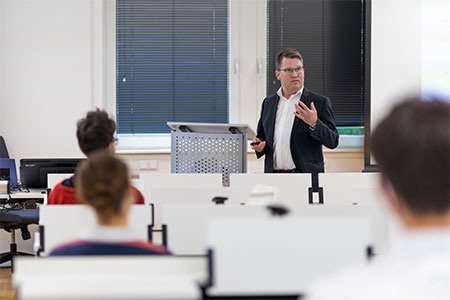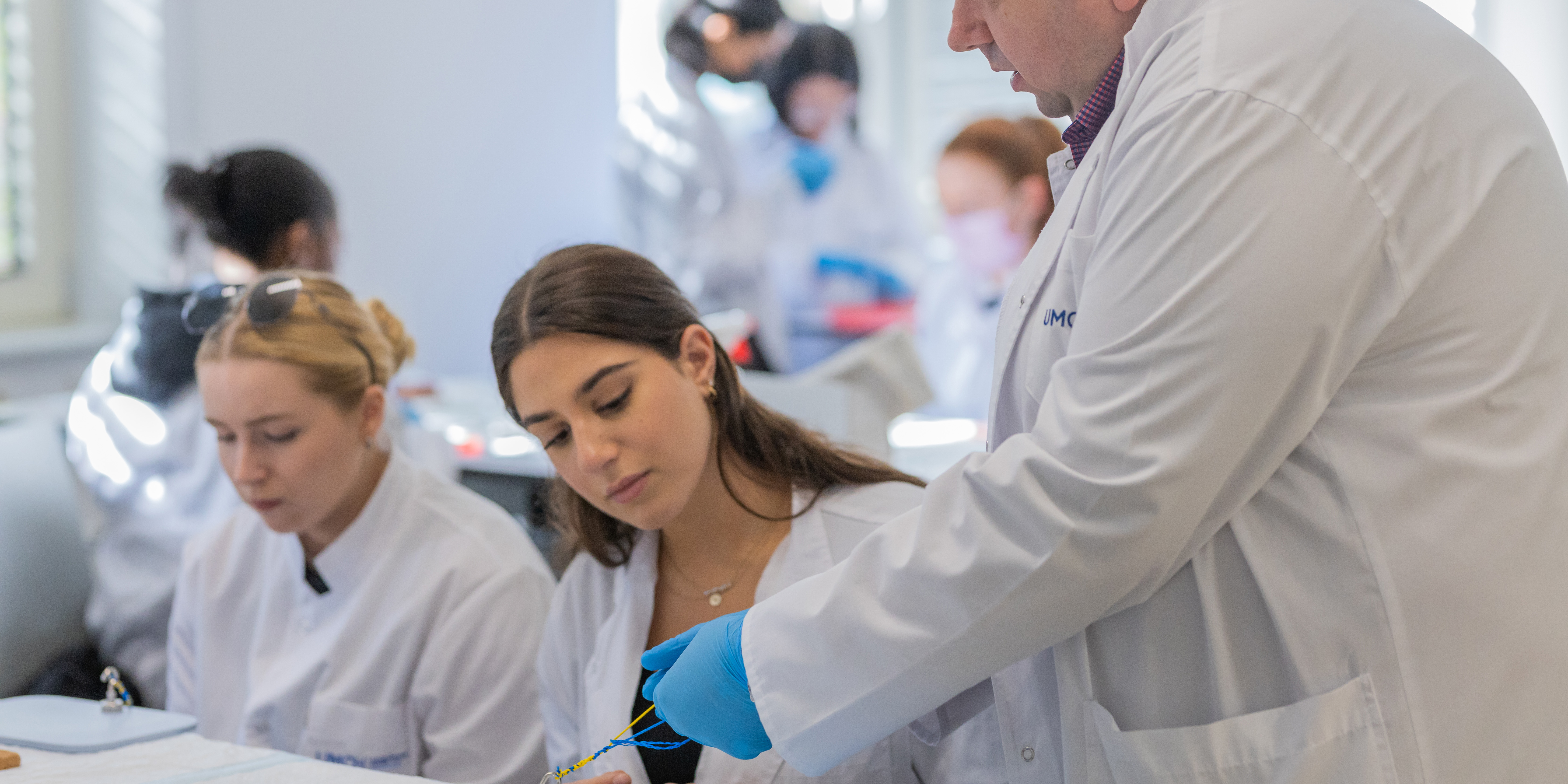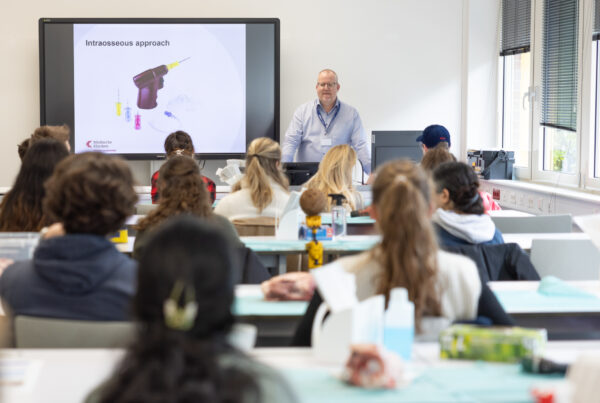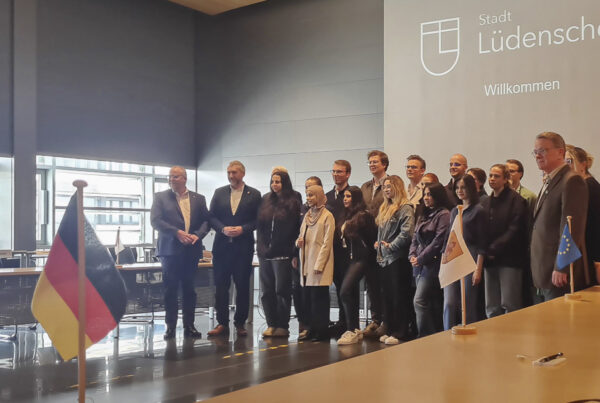 On May 27, 2021, the Medical Director and Chief Physician of the Department of Psychiatry and Psychotherapy at the Hans Prinzhorn Clinic in Hemer, Dr. Patrick Debbelt, was a guest at UMCH and gave a lecture as part of the ReachHigher event series. The Hans Prinzhorn Clinic is a specialized psychiatric facility that is part of the growing network of UMCH teaching hospitals.
On May 27, 2021, the Medical Director and Chief Physician of the Department of Psychiatry and Psychotherapy at the Hans Prinzhorn Clinic in Hemer, Dr. Patrick Debbelt, was a guest at UMCH and gave a lecture as part of the ReachHigher event series. The Hans Prinzhorn Clinic is a specialized psychiatric facility that is part of the growing network of UMCH teaching hospitals.
Dr. Debbelt began his presentation with an insight into his workplace and a brief summary of the history of Psychiatry and Forensic Psychiatry in Germany. Among other things, he reported on the many patients who fell victim to National Socialism during World War II and were killed. He then presented a number of real cases from recent years in which patients with psychotic disorders had committed violent crimes – such as murders of family members. In doing so, he placed the current figures in a larger framework that also takes systemic circumstances into account. For example, he said, there are fewer and fewer places for those affected in psychiatric institutions in Germany and more and more patients. Dr. Debbelt explained this circumstance, among other things, by the fact that due to the concept of Open Psychiatry, those who are ill are increasingly rarely given the opportunity to spend longer periods of time in clinics in order to receive help appropriate to their situation. In the course of the event, the interested participants repeatedly asked questions. After the event, there was a lively Q&A session, in which Dr. Debbelt addressed the question of the difference between schizophrenic and affective disorders, among other topics.
In the workshop accompanying the ReachHigher event, which took place one day later on May 28, the students had the chance to take on the role of forensic experts and work on real criminal cases in group sessions. In the process, they gained insights into the fields of prison and forensics and had the chance to familiarize themselves with the tasks of forensic experts. Finally, the participants independently developed statements and made potential recommendations for handling the respective cases within their groups.
Gallery:





















